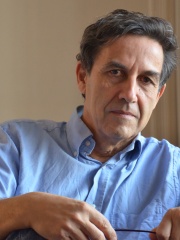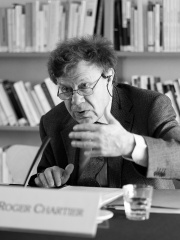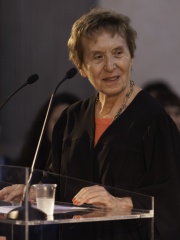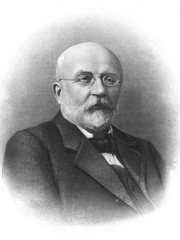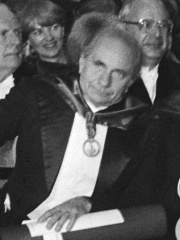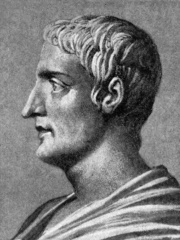
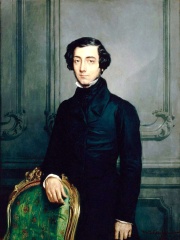
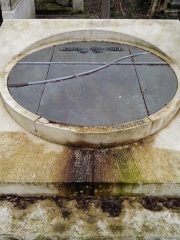

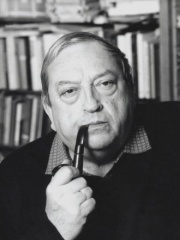
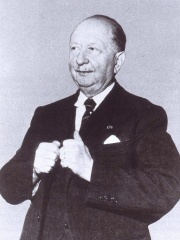
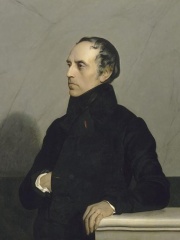
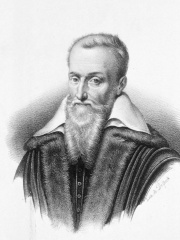
The Most Famous
HISTORIANS from France
This page contains a list of the greatest French Historians. The pantheon dataset contains 561 Historians, 61 of which were born in France. This makes France the birth place of the 3rd most number of Historians behind United Kingdom, and Germany.
Top 10
The following people are considered by Pantheon to be the top 10 most legendary French Historians of all time. This list of famous French Historians is sorted by HPI (Historical Popularity Index), a metric that aggregates information on a biography's online popularity. Visit the rankings page to view the entire list of French Historians.

1. Tacitus (54 - 120)
With an HPI of 82.21, Tacitus is the most famous French Historian. His biography has been translated into 89 different languages on wikipedia.
Publius Cornelius Tacitus, known simply as Tacitus ( TAS-it-əs, Latin: [ˈtakɪtʊs]; c. AD 56 – c. 120), was a Roman historian and politician. Tacitus is widely regarded as one of the greatest Roman historians by modern scholars. Tacitus's two major historical works, Annals (Latin: Annales) and the Histories (Latin: Historiae), originally formed a continuous narrative of the Roman Empire from the death of Augustus (14 AD) to the end of Domitian's reign (96 AD). The surviving portions of the Annals focus on the reigns of Tiberius, Claudius, Nero, and those who reigned in the Year of the Four Emperors (69 AD). Tacitus's other writings discuss oratory (in dialogue format, see Dialogus de oratoribus), Germania (in De origine et situ Germanorum), and the life of his father-in-law, Agricola (the general responsible for much of the Roman conquest of Britain), mainly focusing on his campaign in Britannia (De vita et moribus Iulii Agricolae). Tacitus's Histories offers insights into Roman attitudes towards Jews, descriptions of Jewish customs, and context for the First Jewish–Roman War. His Annals are of interest for providing an early account of the persecution of Christians and one of the earliest extra-Biblical references to the crucifixion of Jesus.

2. Alexis de Tocqueville (1805 - 1859)
With an HPI of 78.33, Alexis de Tocqueville is the 2nd most famous French Historian. His biography has been translated into 76 different languages.
Alexis Charles Henri Clérel, comte de Tocqueville (29 July 1805 – 16 April 1859), was a French diplomat, political philosopher and historian. He is best known for his works Democracy in America (appearing in two volumes, 1835 and 1840) and The Old Regime and the Revolution (1856). In both, he analyzed the living standards and social conditions of individuals as well as their relationship to the market and state in Western societies. Democracy in America was published after Tocqueville's travels in the United States and is today considered an early work of sociology and political science. Tocqueville was active in French politics, first under the July Monarchy (1830–1848) and then during the Second Republic (1849–1851) which succeeded the February 1848 Revolution. He retired from political life after Louis Napoléon Bonaparte's 2 December 1851 coup and thereafter began work on The Old Regime and the Revolution. Tocqueville argued the importance of the French Revolution was to continue the process of modernizing and centralizing the French state which had begun under King Louis XIV. He believed the failure of the Revolution came from the inexperience of the deputies who were too wedded to abstract Enlightenment ideals. Tocqueville was a classical liberal who advocated parliamentary government and was sceptical of the extremes of majoritarianism. During his time in parliament, he was first a member of the centre-left before moving to the centre-right, and the complex and restless nature of his liberalism has led to contrasting interpretations and admirers across the political spectrum. For example, Democracy in America was interpreted differently across national contexts. In France and the United States, Tocqueville's work was seen as liberal, whereas both progressives and conservatives in the British Isles interpreted his work as supporting their own positions.

3. Fernand Braudel (1902 - 1985)
With an HPI of 75.13, Fernand Braudel is the 3rd most famous French Historian. His biography has been translated into 56 different languages.
Fernand Paul Achille Braudel (French: [fɛʁnɑ̃ bʁodɛl]; 24 August 1902 – 27 November 1985) was a French historian. His scholarship focused on three main projects: The Mediterranean (1923–49, then 1949–66), Civilization and Capitalism (1955–79), and the unfinished Identity of France (1970–85). He was a member of the Annales School of French historiography and social history in the 1950s and 1960s. Braudel emphasized the role of large-scale socioeconomic factors in the making and writing of history. In a 2011 poll by History Today magazine, he was named the most important historian of the previous 60 years.

4. Marc Bloch (1886 - 1944)
With an HPI of 73.38, Marc Bloch is the 4th most famous French Historian. His biography has been translated into 49 different languages.
Marc Léopold Benjamin Bloch ( BLOCK; French: [maʁk leɔpɔld bɛ̃ʒamɛ̃ blɔk]; 6 July 1886 – 16 June 1944) was a French historian. He was a founding member of the Annales School of French social history. Bloch specialised in medieval history and published widely on medieval France over the course of his career. As an academic, he worked at the University of Strasbourg (1920 to 1936 and 1940 to 1941), the University of Paris (1936 to 1939), and the University of Montpellier (1941 to 1944). Born in Lyon to an Alsatian Jewish family, Bloch was raised in Paris, where his father—the classical historian Gustave Bloch—worked at Sorbonne University. Bloch was educated at various Parisian lycées and the École Normale Supérieure, and from an early age was affected by the antisemitism of the Dreyfus affair. During the First World War, he served in the French Army and fought at the First Battle of the Marne and the Somme. After the war, he was awarded his doctorate in 1918 and became a lecturer at the University of Strasbourg. There, he formed an intellectual partnership with modern historian Lucien Febvre. Together they founded the Annales School and began publishing the journal Annales d'histoire économique et sociale in 1929. Bloch was a modernist in his historiographical approach, and repeatedly emphasised the importance of a multidisciplinary engagement towards history, particularly blending his research with that on geography, sociology and economics, which was his subject when he was offered a post at the University of Paris in 1936. During the Second World War Bloch volunteered for service, and was a logistician during the Phoney War. Involved in the Battle of Dunkirk and spending a brief time in Britain, he unsuccessfully attempted to secure passage to the United States. Back in France, where his ability to work was curtailed by new antisemitic regulations, he applied for and received one of the few permits available allowing Jews to continue working in the French university system. He had to leave Paris, and complained that the Nazi German authorities looted his apartment and stole his books; he was also persuaded by Febvre to relinquish his position on the editorial board of Annales. Bloch worked in Montpellier until November 1942 when Germany invaded Vichy France. He then joined the non-Communist section of the French Resistance and went on to play a leading role in its unified regional structures in Lyon. In 1944, he was captured by the Gestapo in Lyon and murdered in a summary execution after the Allied invasion of Normandy. Several works—including influential studies like The Historian's Craft and Strange Defeat—were published posthumously. His historical studies and his death as a member of the Resistance together made Bloch highly regarded by generations of post-war French historians; he came to be called "the greatest historian of all time". By the end of the 20th century, historians were making a more critical assessment of Bloch's abilities, influence, and legacy, arguing that there were flaws to his approach.
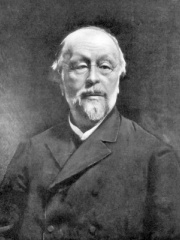
5. Hippolyte Taine (1828 - 1893)
With an HPI of 73.03, Hippolyte Taine is the 5th most famous French Historian. His biography has been translated into 48 different languages.
Hippolyte Adolphe Taine (21 April 1828 – 5 March 1893) was a French historian, critic and philosopher. He was the chief theoretical influence on French naturalism, a major proponent of sociological positivism and one of the first practitioners of historicist criticism. Literary historicism as a critical movement has been said to originate with him. Taine is also remembered for his attempts to provide a scientific account of literature. Taine had a profound effect on French literature; Maurice Baring wrote in the 1911 Encyclopædia Britannica that "the tone which pervades the works of Zola, Bourget and Maupassant can be immediately attributed to the influence we call Taine's." Out of the trauma of 1871, Taine has been said by one scholar to have "forged the architectural structure of modern French right-wing historiography."

6. Jacques Le Goff (1924 - 2014)
With an HPI of 72.92, Jacques Le Goff is the 6th most famous French Historian. His biography has been translated into 46 different languages.
Jacques Le Goff (French: [ʒak lə ɡɔf]; 1 January 1924 – 1 April 2014) was a French historian and prolific author specializing in the Middle Ages, particularly the 12th and 13th centuries. Le Goff championed the Annales School movement, which emphasizes long-term trends over the topics of politics, diplomacy, and war that dominated 19th-century historical research. From 1972 to 1977, he was the head of the School for Advanced Studies in the Social Sciences (EHESS) in Paris. He was a leading figure of New History, related to cultural history. Le Goff argued that the Middle Ages formed a civilization of its own, distinct from both Classical Antiquity and the modern world.

7. Lucien Febvre (1878 - 1956)
With an HPI of 71.88, Lucien Febvre is the 7th most famous French Historian. His biography has been translated into 43 different languages.
Lucien Paul Victor Febvre ( FEV-rə; French: [lysjɛ̃ pɔl viktɔʁ fɛvʁ]; 22 July 1878 – 11 September 1956) was a French historian best known for the role he played in establishing the Annales School of history. He was the initial editor of the Encyclopédie française together with Anatole de Monzie.

8. François Guizot (1787 - 1874)
With an HPI of 71.51, François Guizot is the 8th most famous French Historian. His biography has been translated into 48 different languages.
François Pierre Guillaume Guizot (French: [fʁɑ̃swa pjɛʁ ɡijom ɡizo]; 4 October 1787 – 12 September 1874) was a French historian, orator and statesman. Guizot was a dominant figure in French politics between the Revolution of 1830 and the Revolution of 1848. A conservative liberal who opposed the attempt by King Charles X to usurp legislative power, he worked to sustain a constitutional monarchy following the July Revolution of 1830. He then served the "citizen king" Louis Philippe I, as Minister of Education 1832–37, ambassador to London 1840, Foreign Minister 1840–1847, and finally Prime Minister of France from 19 September 1847 to 23 February 1848. Guizot's influence was critical in expanding public education, which under his ministry saw the creation of primary schools in every French commune. As a leader of the "Doctrinaires", committed to supporting the policies of Louis Phillipe and limitations on further expansion of the political franchise, he earned the hatred of more left-leaning liberals and republicans through his unswerving support for restricting suffrage to propertied men and supposedly advised those who wanted the vote to "enrich yourselves" (enrichissez-vous) through hard work and thrift. As Prime Minister, it was Guizot's ban on the political meetings (called the campagne des banquets or the Paris Banquets, which were held by moderate liberals who wanted a larger extension of the franchise) of an increasingly vigorous opposition in January 1848 that catalyzed the revolution that toppled Louis Philippe in February and saw the establishment of the French Second Republic. He is mentioned in the famous opening paragraph of the Communist Manifesto ("a spectre is haunting Europe...") as a representative of the more liberal faction of the counter-revolutionary forces of Old Europe, contrasted with that of the more reactionary forces, Klemens von Metternich. Marx and Engels published that book just days before Guizot's overthrow in the 1848 Revolution.

9. Joseph Justus Scaliger (1540 - 1609)
With an HPI of 70.98, Joseph Justus Scaliger is the 9th most famous French Historian. His biography has been translated into 37 different languages.
Joseph Justus Scaliger (; 5 August 1540 – 21 January 1609) was a Franco-Italian Calvinist religious leader and scholar, known for expanding the notion of classical history from Greek and Ancient Roman history to include Persian, Babylonian, Jewish and Ancient Egyptian history. He spent the last sixteen years of his life in the Netherlands.
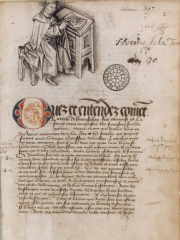
10. Geoffrey of Villehardouin (1150 - 1210)
With an HPI of 69.24, Geoffrey of Villehardouin is the 10th most famous French Historian. His biography has been translated into 31 different languages.
Geoffrey of Villehardouin (c. 1150 – c. 1213) was a French knight and historian who participated in and chronicled the Fourth Crusade. He is considered one of the most important historians of the time period, best known for writing the eyewitness account De la Conquête de Constantinople (On the Conquest of Constantinople), about the battle for Constantinople between the Christians of the West and the Christians of the East on 13 April 1204. The Conquest is the earliest French historical prose narrative that has survived to modern times. Ηis full title was: "Geoffroi of Villehardouin, Marshal of Champagne and of Romania".
People
Pantheon has 61 people classified as French historians born between 54 and 1982. Of these 61, 6 (9.84%) of them are still alive today. The most famous living French historians include Emmanuel Todd, Roger Chartier, and Stéphane Courtois. The most famous deceased French historians include Tacitus, Alexis de Tocqueville, and Fernand Braudel.
Living French Historians
Go to all RankingsEmmanuel Todd
1951 - Present
HPI: 66.01
Roger Chartier
1945 - Present
HPI: 61.66
Stéphane Courtois
1947 - Present
HPI: 59.43
Élisabeth Roudinesco
1944 - Present
HPI: 58.34
Michelle Perrot
1928 - Present
HPI: 54.05
Rémi Mathis
1982 - Present
HPI: 40.46
Deceased French Historians
Go to all RankingsTacitus
54 - 120
HPI: 82.21
Alexis de Tocqueville
1805 - 1859
HPI: 78.33
Fernand Braudel
1902 - 1985
HPI: 75.13
Marc Bloch
1886 - 1944
HPI: 73.38
Hippolyte Taine
1828 - 1893
HPI: 73.03
Jacques Le Goff
1924 - 2014
HPI: 72.92
Lucien Febvre
1878 - 1956
HPI: 71.88
François Guizot
1787 - 1874
HPI: 71.51
Joseph Justus Scaliger
1540 - 1609
HPI: 70.98
Geoffrey of Villehardouin
1150 - 1210
HPI: 69.24
Gaston Maspero
1846 - 1916
HPI: 68.36
Georges Duby
1919 - 1996
HPI: 67.05
Overlapping Lives
Which Historians were alive at the same time? This visualization shows the lifespans of the 25 most globally memorable Historians since 1700.

